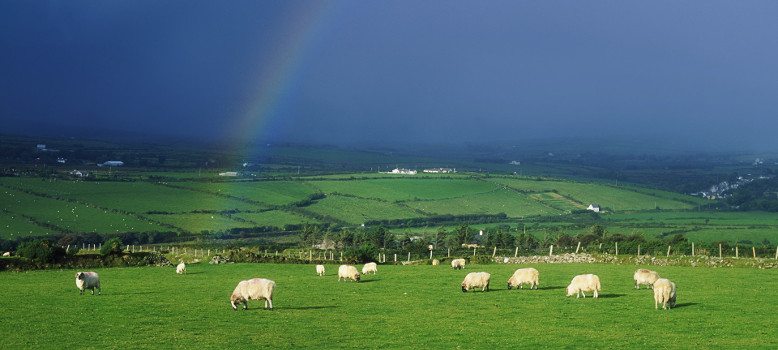IFA Welcomes Recommendations for New Environmental Payment and Promotion Programme for the Sheep Sector

IFA Sheep Chairman John Lynskey has welcomed the recommendations made by the EU Sheepmeat Forum for strong CAP support for sheep producers, including a proposal for a new environmental payment, and a new EU sheepmeat communications and promotion programme.
These were among the priority recommendations from the EU Sheepmeat Forum, which held its final meeting with the EU Agriculture Commissioner Phil Hogan in Brussels today.
IFA National Sheep Chairman John Lynskey, who is a member of the EU Sheep Forum, said the recommendations of the forum provide a positive policy framework for an economically and environmentally sustainable sheepmeat sector. “The sheep sector delivers significantly, not only for farmers and rural Ireland, especially in mountain and hill areas where other types of farming are not an option, but also in terms of the delivery of public goods to society.”
Established by Commissioner Hogan in Autumn 2015, and chaired by John Bryan, the Forum brought together participants from Member States and formulated a series of key recommendations for the sheep sector, which were presented to Commissioner Hogan this week.
Recommendations from the EU Sheep Meat Forum:
Strong CAP Support for sheep producers including coupled supports as well as prioritised and enhanced Rural Development measures.
New Environmental Payment As part of the CAP, to support measures for managing grassland through extensive livestock farming and to help reverse the accelerating problem of declining sheep numbers and land abandonment, the Forum recommended the Commission consider the possibility of a New Environmental based payment.
New Sheepmeat Communications and Promotion Programme with a strong focus on the internal market aimed at positioning EU lamb as the automatic choice among EU consumers. Within EU promotion measures specific ring-fenced funding should be targeted to sheep.
Prioritised and Enhanced Rural Development Measures Target Rural Development measures more directly at active sheep farming. RDP measures should be prioritised and enhanced for sheep farmers. Member States to fully utilise and make available Knowledge Transfer and advice, animal welfare and capital investment grant aid.
Young Farmers Increased support for young farmers entering or involved in sheep production. A continuation of the direct payments top-up under the Young Farmers Scheme. Targeted measures for young farmers under the RDP and higher payment rates.
Improved Market Transparency. A Dashboard on sheep meat to be delivered similar to other meat sectors. Improve price reporting and establish a Market Price Observatory to provide transparency across the entire supply chain including information on the key aspects of trade, price and margins across the supply chain.
Position in the Food Supply Chain. Extend the provisions on contractual negotiations within Regulation 1308/2013 to the sheep sector. Improved regulation across the food chain to remove unfair trading practices and create a fairer trading environment for suppliers, processors and primary producers.
Trade Issues. Preferential market access should not be increased above the currently existing tariff rate quotas. Continued designation of sheepmeat as sensitive product. EU imports must meet standards equivalent to those required of EU producers across the key areas of animal health, consumer protection and the environment. On Brexit, existing and historic trade flows should be fully re-examined and a trade policy solution found that best accommodates the needs of the sector. Intensify efforts to lift existing SPS barriers which inhibit EU exports. Supports information campaigns in international markets to facilitate the import of EU sheep meat. Facilitating and maximising access for EU live sheep export to existing and new market opportunities.
Simplification and Cross Compliance. The inspection process across the cross compliance requirements, including sheep ID should provide a right to rectify in a close out approach. Member States to make use of the flexibilities provided for in the legislation for certain unintentional non-compliances, including on identification and traceability. A more proportionate and fairer approach regarding penalties and tolerances.
Sheep Identification. The development of supplementing rules on the identification and registration of sheep including simplifying requirements on the presentation of the movement documents, the time periods for recording movements, the application of identifiers and other areas. The use of a batch traceability system, where appropriate. The continued availability and use of the derogation in respect of EID on lambs sent direct to slaughter.
The EU Sheep Forum made further recommendations in relation to innovation, sanitary issues, and natural predators.




